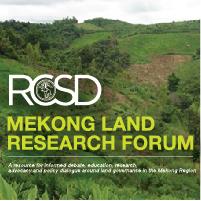Resource information
During the post-reform period since 1986, land-use systems in Vietnam have been reformed in terms of the regulation of land markets and the built environment. This study analyzes the changing role of urban planning and the policy of state intervention in land markets to manage spatial changes in Vietnamese cities. Theoretical and empirical approaches are used to analyze urban development and planning practices in Hanoi. The study further describes the constraints of planning systems in hybrid land markets that include both formal and informal land development. We argue that in Vietnam, where the role of the state in market construction has not been fully developed and land market institutions are incomplete, urban planning is used as a passive tool of state control and is no longer relevant to the process of spatial development, which is driven by the speculative activities of interest actors. This situation challenges state regulations for the effective management of spatial resources. The empirical results suggest the utility of further reforms to the land-use system and planning institutions in Vietnam, and of strengthening the capacity of the state in land administration.


